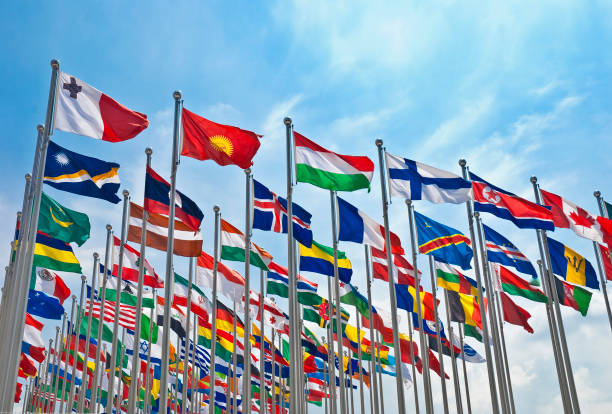In the ever-evolving landscape of global trade, one recent development has captured the attention of African nations—China’s announcement of zero tariffs on a variety of goods imported from African countries. This move, part of China’s broader economic strategy to strengthen its relationship with Africa, holds the potential to transform the continent’s economic future. But what exactly does this change mean for African economies, and how can they maximize the opportunities it presents?
China’s Zero Tariff Initiative: What It Means
China has long been a crucial trading partner for African countries. Over the years, China’s investments in infrastructure, trade agreements, and financing for key projects have made the country a vital player in Africa’s development. In November 2021, Chinese President Xi Jinping announced that China would grant zero-tariff treatment to 98% of goods imported from 15 African nations. These goods, including industrial products, agricultural commodities, and natural resources, would enter China without the hefty duties that have historically hindered trade between the two regions.
Zero tariffs on African exports to China are expected to reduce costs for African producers, open up access to one of the world’s largest consumer markets, and enhance economic growth opportunities across the continent. This policy is part of China’s commitment to expanding trade with Africa and fostering stronger economic and diplomatic ties.
A Boon for African Exports
One of the immediate benefits of China’s zero-tariff policy is its potential to boost African exports. For many African nations, China is already one of their largest trading partners, particularly in sectors like oil, minerals, and agricultural products. However, tariffs have often served as a barrier, making African goods more expensive and less competitive in the Chinese market.
By removing these tariffs, African producers can now sell their goods at more competitive prices, which could drive up demand. For example, countries like South Africa, which is known for exporting wine, fruits, and agricultural products, could see a significant boost in sales to Chinese consumers. Similarly, African nations that export oil and minerals could benefit from reduced costs and better access to China’s vast industrial sector.
Beyond just raw materials, Africa could also strengthen its position in industries like textiles, fashion, and furniture manufacturing, sectors where China’s growing middle class is eager for new products. This would allow African countries to diversify their exports and create new sources of revenue, reducing their reliance on the traditional sectors like oil and mining.
Economic Diversification and Industrialization
The zero-tariff policy offers African countries the chance to diversify their economies. Many African nations are heavily dependent on a few sectors, especially natural resources. By creating opportunities for the export of manufactured goods, China’s tariff policy could help foster industrialization across the continent.
Take Ethiopia, for instance, which has made significant strides in textile and garment manufacturing. With lower tariffs on these products entering China, Ethiopian businesses could grow their exports to a country with one of the largest textile markets in the world. This growth would not only enhance the country’s economic stability but also create jobs and improve the livelihoods of thousands of people in the manufacturing sector.
This shift towards diversification is critical for African nations looking to break the cycle of dependency on exports of raw materials. It’s an opportunity to build industries, increase the added value of exports, and develop homegrown businesses that can compete on a global scale.
Creating Job Opportunities and Reducing Unemployment
For African nations, unemployment remains one of the biggest challenges. Youth unemployment rates are especially high, and many countries face struggles in providing enough opportunities for young people to enter the workforce. China’s zero-tariff policy could help address these challenges by creating new job opportunities in sectors such as manufacturing, agriculture, and services.
As African countries expand their exports to China, new industries will emerge, particularly in manufacturing and trade. Small and medium-sized businesses in these sectors will need skilled workers, which could drive the creation of new jobs. Additionally, the growth of Africa’s export markets would likely lead to an increase in investments in infrastructure, transportation, and logistics. This, too, would create employment opportunities in other sectors, benefiting the economy as a whole.
Enhancing Infrastructure Development
A major factor in the success of the zero-tariff initiative will be the continent’s ability to efficiently transport goods to China. Many African nations still face infrastructure challenges, from poor roads to insufficient ports and airports. However, China has long invested in African infrastructure, with projects like railways, highways, and ports funded through loans and direct investments.
With the increase in exports to China, the demand for better infrastructure will grow. This creates an opportunity for African governments to invest in critical infrastructure projects, potentially with financial support from China, and improve the continent’s overall trade capabilities. Improved roads, railways, and ports would not only benefit trade with China but also create a more conducive environment for economic growth and development within Africa.
A Path to Sustainable Growth and Development
For many African countries, economic growth has often been at odds with environmental sustainability. Rapid industrialization has come with environmental costs, including deforestation, pollution, and depletion of natural resources. However, with China’s growing focus on sustainable development, there is an opportunity for African nations to align their growth strategies with green and sustainable practices.
China has already pledged to reduce its carbon emissions and invest in renewable energy, and African countries can use this as a model. As they increase exports to China, African nations can adopt more sustainable farming practices, use cleaner technologies in manufacturing, and focus on eco-friendly infrastructure projects. China’s support for such initiatives could provide the funding and technological expertise needed for Africa to grow in an environmentally sustainable manner.
Challenges and Considerations
While the zero-tariff policy presents numerous benefits for African economies, there are also several challenges that must be addressed for the policy to reach its full potential. First, African countries must ensure that their industries are ready to meet the demands of China’s vast market. This will require improvements in the quality of goods, enhanced production capacity, and the development of skilled labor.
Moreover, some African countries may face the challenge of competing with other emerging economies for access to the Chinese market. With China’s economic influence extending beyond Africa to regions like Latin America and Southeast Asia, African nations will need to be strategic in positioning their products to stand out in a crowded market.
Finally, there is the matter of trade balance. While removing tariffs will make it easier for African countries to sell goods to China, it’s equally important for African nations to import from China in a way that doesn’t negatively impact their local industries. African governments will need to strike a delicate balance between benefiting from zero tariffs and ensuring that their local businesses and industries remain competitive.





